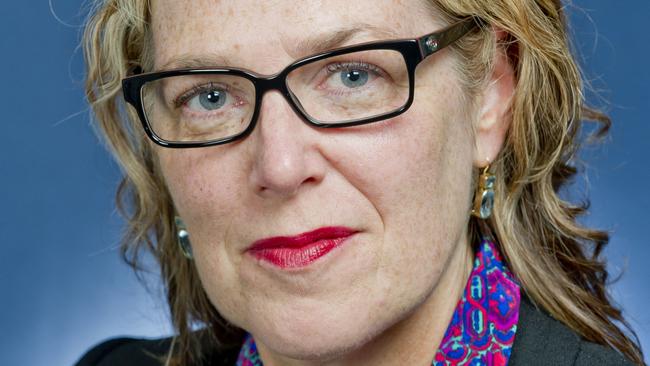Beijing hauls in envoy over interference laws
Australia’s ambassador to China has been called into the Chinese foreign ministry over the foreign interference laws.

Australia’s ambassador to China has been called into the Chinese Ministry of Foreign Affairs for a dressing down over the Turnbull government’s foreign interference laws amid accusations by Beijing that anti-China rhetoric is damaging the relationship.
In a sign of the increasing tensions between the two governments, Jan Adams was officially summoned by Chinese officials on Friday. The Australian has also learned that China’s ambassador to Australia, Cheng Jingye, on Monday made formal representations to the acting secretary of the Department of Foreign Affairs, Penny Williams.
As the row deepened, Malcolm Turnbull confirmed that the government had made reassurances to Beijing that it was not seeking to single out China with its proposed foreign interference legislation.
Yesterday China’s Global Times newspaper accused Australia of McCarthyism and warned that Chinese people with close ties to Westerners “would be treated like informants to Western spy agencies and be accused of treason, like Australian politician Sam Dastyari”.
This followed a strident statement issued by the Chinese embassy last week accusing Australian politicians of undermining “mutual trust”. China’s Foreign Ministry went further, directly attacking Mr Turnbull for “poisoning” the relationship.
The Prime Minister confirmed that Australian officials had delivered reassurances to Beijing that the introduction of foreign interference and transparency legislation last week was not directed at any one country. “Our ambassador is obviously in constant touch ... and Julie (Bishop) is, and DFAT is,” Mr Turnbull said in an interview with The Australian on Monday.
“Our ambassador in Beijing, Jan Adams, is the closest liaison.”
Mr Turnbull insisted the new laws were not intended to single out China. “This is not about any one country, it is simply about preserving our sovereignty,” he said. “The fact is we are an independent nation and we must assert our sovereignty ... nobody, no one seriously suggests that foreign governments or people acting on behalf of governments, or purporting to act on their behalf should be able to interfere with our politics … I don’t care what country they come from.”
One former senior government official has said, however, this will not be the end of the matter. The official, who does not wish to be named because of ongoing involvement in public affairs, said Beijing’s decision to single out an Australian prime minister was highly unusual and likely meant there would be further retaliation.
“I think it would be very unwise to assume the Chinese will not react beyond words,” he said. “The Chinese in due course will reduce our trade and that will be pretty unpleasant. Absolutely, they can buy iron ore from Brazil.”
The increasing tensions with Beijing follow the release of the foreign affairs white paper two weeks ago, which Beijing interpreted as plan to build regional alliances to counter Chinese power.
Analysts have claimed there were already signs of strain over the failure of the Australian government to implement a long-promised extradition treaty, the dispute over the South China Sea, and Australia’s refusal to sign up to China’s economic and strategic Belt and Road Initiative.
However, the foreign interference and foreign donations laws to counter the involvement of foreign powers in Australia’s political system, combined with the Dastyari scandal have elevated matters to a diplomatic level. Labor has accused the Turnbull government of mishandling the relationship with China — citing rhetoric used in its attacks on Senator Dastyari and his links to Chinese interests. “We should always safeguard Australian sovereignty, but we don’t need to do that in a way that is needlessly inflammatory,” Labor foreign affairs spokeswoman Penny Wong said. “And some of how this discussion has been conducted, I think because of Malcolm Turnbull’s desperation for a political win, I think has not been helpful.”
The government returned fire on Labor, saying it had run a “race card” in its opposition to the China free-trade agreement.
Mr Turnbull said the new laws were not dissimilar to those of other countries. “What we are proposing with the legal changes is there are some new offences being created, and they are very serious criminal offences I might add.
“But probably the most significant part of it is transparency. If you are acting on behalf of a foreign government ... in trying to influence Australian politics or policy ... you should declare yourself to be. The Americans have been doing it for years.”
Additional reporting: Rowan Callick





